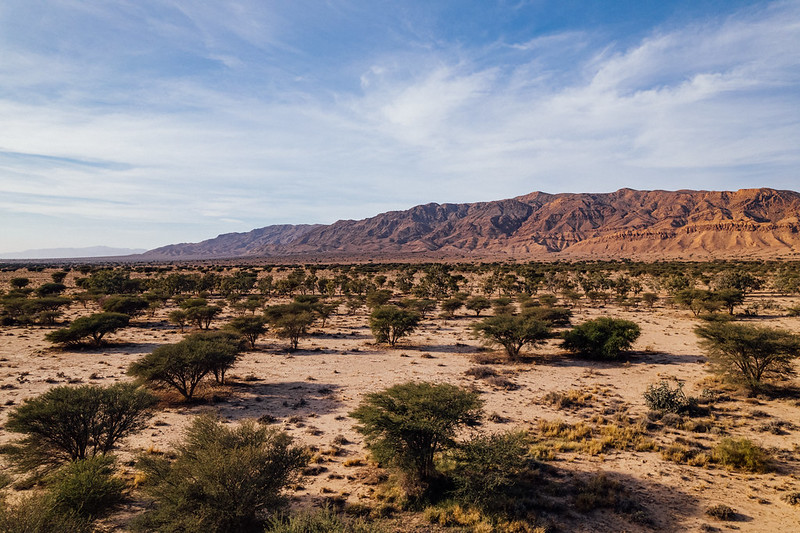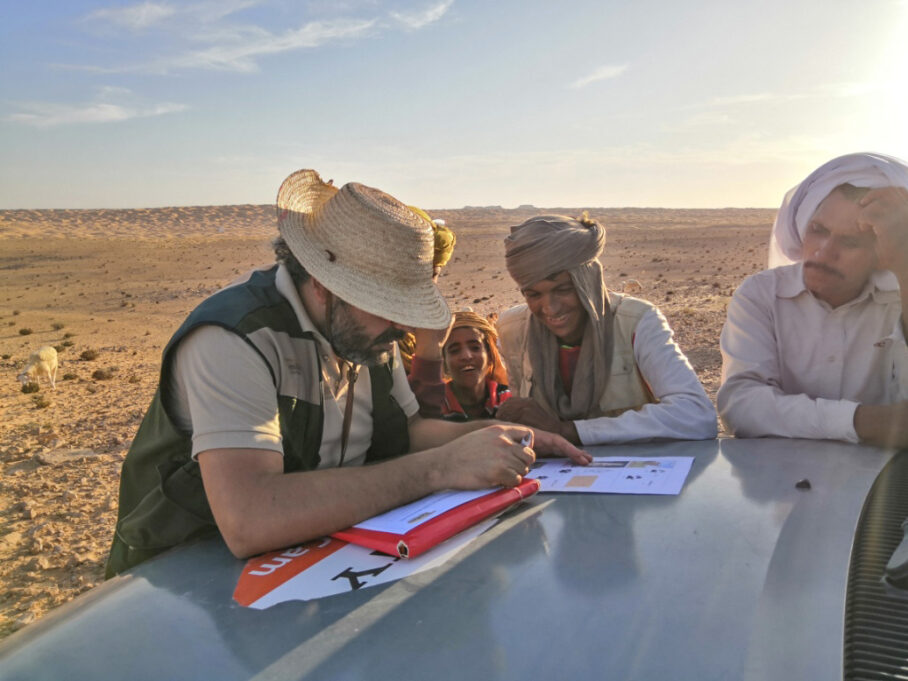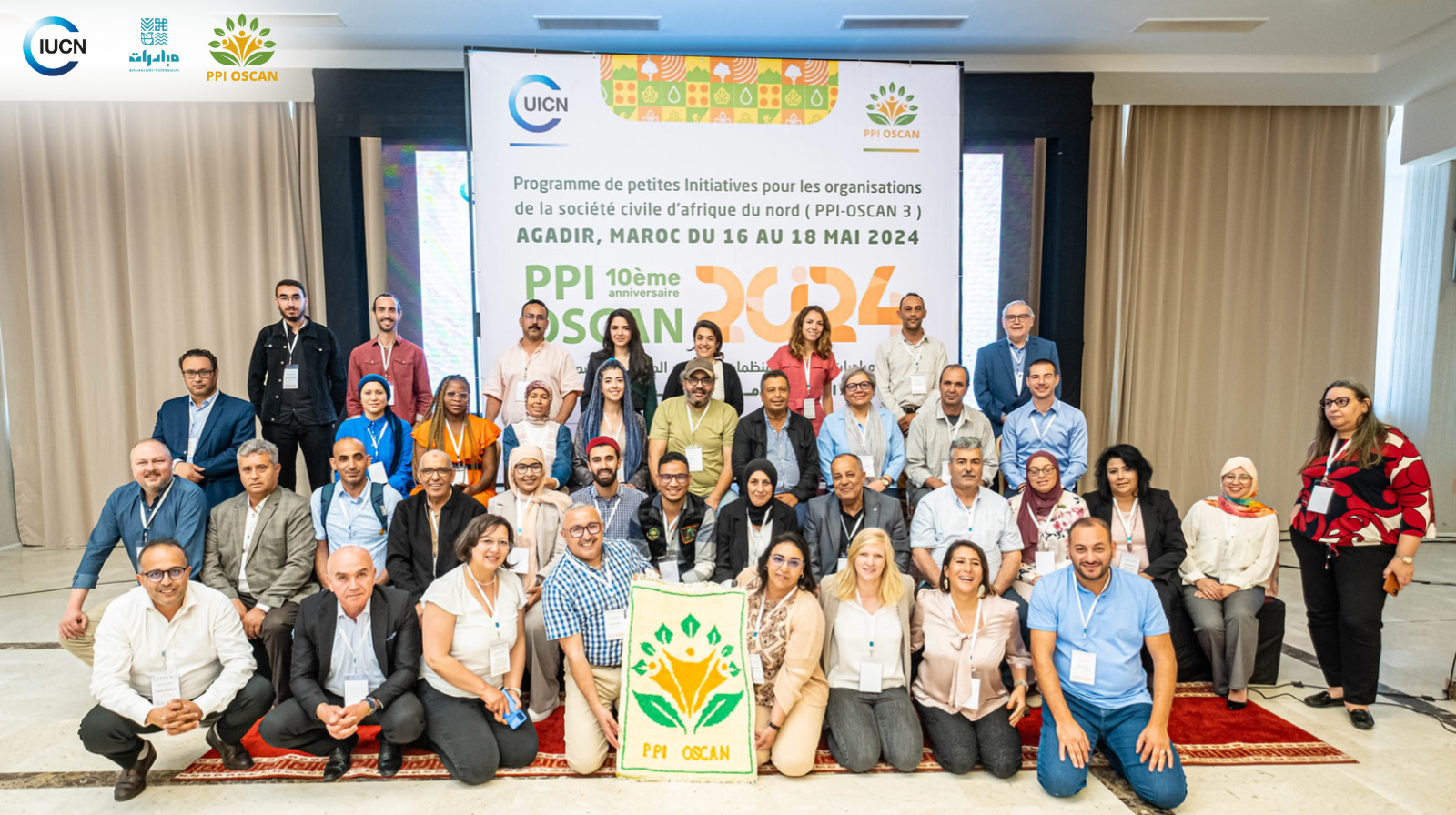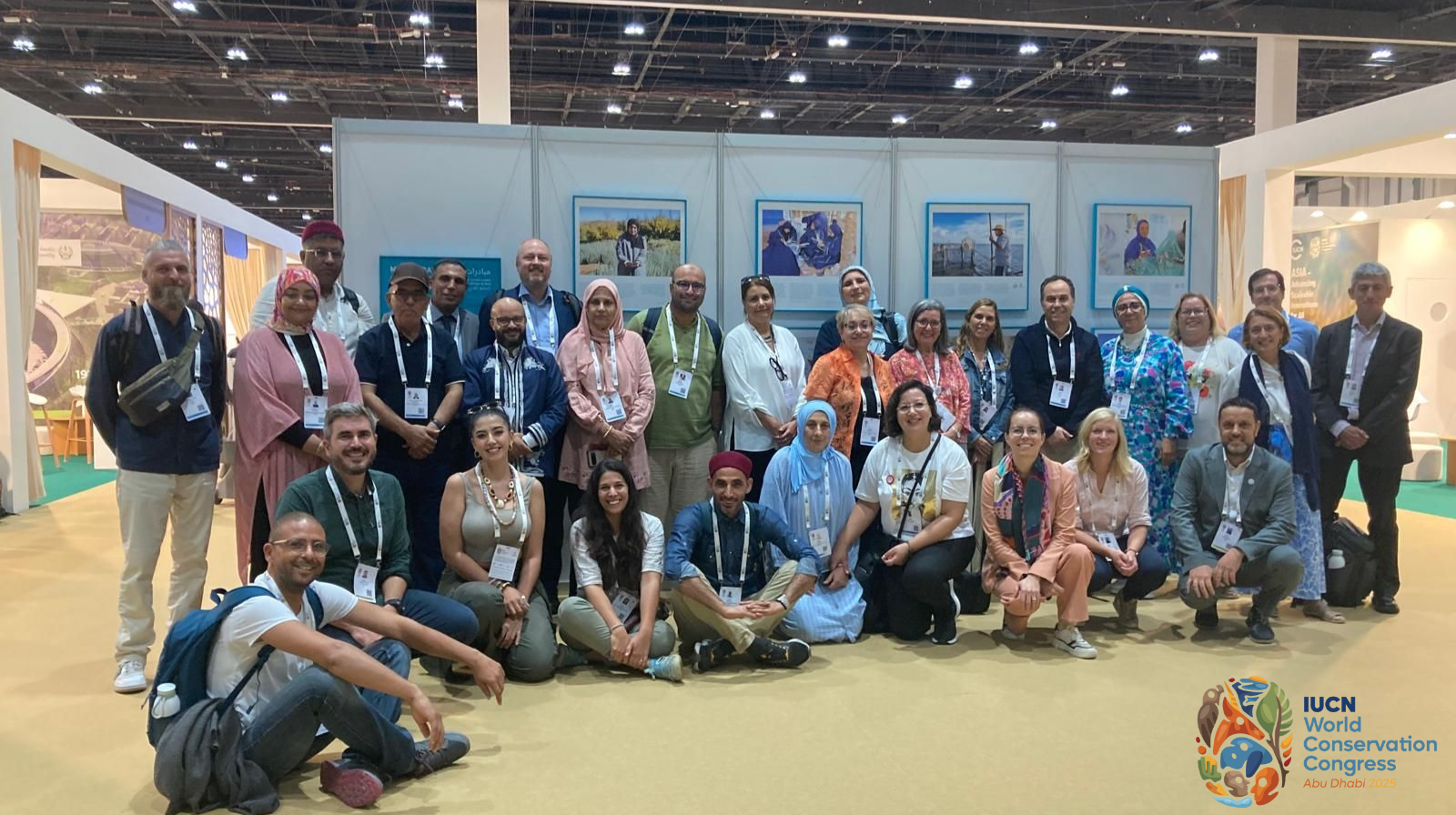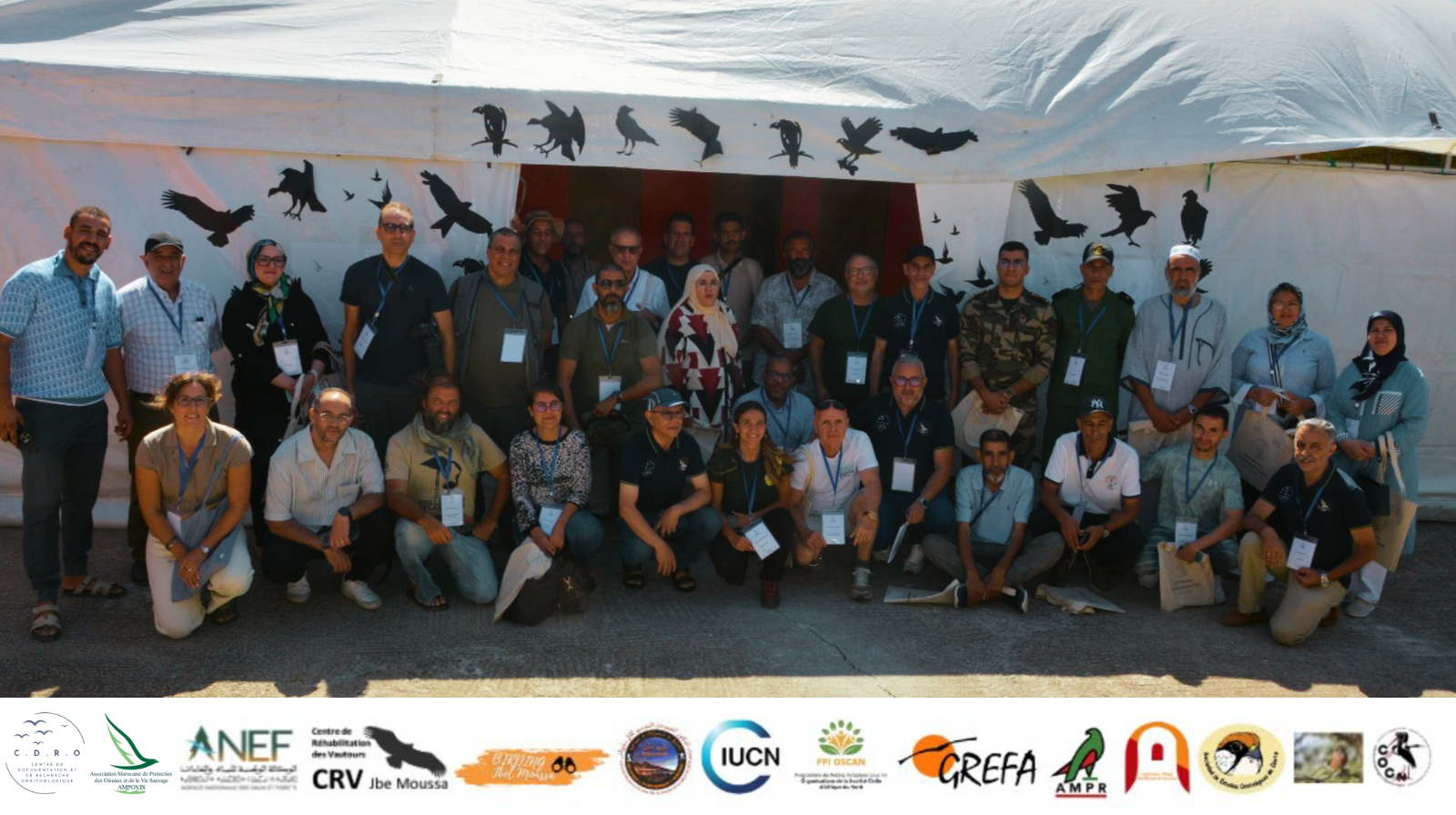BIOREC: The Biodiversity Observatory that Restores Life to Ecosystems and Communities – Bouhedma National Park
Bouhedma National Park, in Tunisia’s pre-Saharan region, is home to a unique acacia savannah ecosystem in Tunisia, home to globally important endangered species such as oryx, African golden wolves and red-necked ostriches.
In the heart of this unique park, the Association Tunisienne des Randonneurs d’Akouda (ATRA) has launched the BIOREC Bouhedma project, a biodiversity observatory and research center in the heart of nature. An initiative supported by the PPI OSCAN 3 program. BIOREC Bouhedma aims to protect this exceptional biodiversity while supporting local communities through the development of ecotourism and sustainable activities. By integrating local knowledge and scientific research, the project relies on a participatory approach to ensure the sustainability of conservation actions and promote harmonious cohabitation between man and nature.
Conservation & Research Project
Over the years, ATRA has developed invaluable know-how through previous projects, such as the PPI OSCAN 2 program, which laid the foundations for the current BIOREC observatory. This project makes it possible to monitor the evolution of species and carry out in-depth ecological studies, notably on ungulates (oryx, dorcas gazelles), rodents (gerbils, goundis), reptiles and pollinating insects. Using camera traps installed in strategic areas, teams can document wildlife in a non-invasive way.
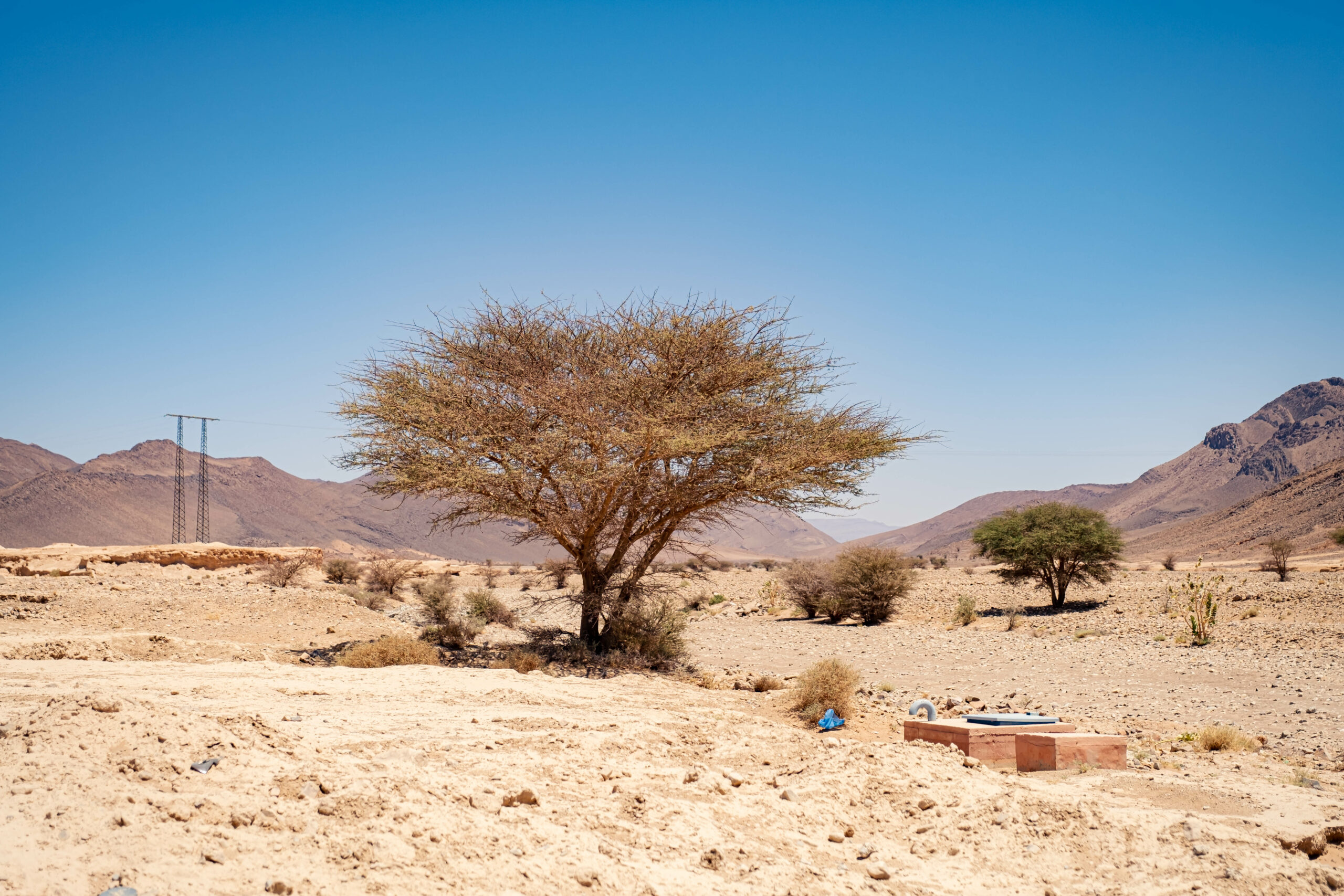
Main objectives
- Habitat conservation and restoration ATRA is working to restore degraded areas of the park by replanting native species of trees and shrubs, in particular the acacia savannah. This habitat restoration not only preserves biodiversity, but also strengthens ecosystems in the face of environmental threats.
- Involvement of local communities Since the project was launched, the association has succeeded in raising awareness among over 40% of the local target population of the importance of reforesting the region’s emblematic tree, the acacia tortilis raddiana. The initiative places local communities at the heart of the project. BIOREC Bouhedma supports local initiatives such as the creation of guest houses and the training of local people in eco-tourism practices, enabling them to benefit from the economic spin-offs of the project. This model promotes sustainable development in harmony with the region’s environmental priorities.
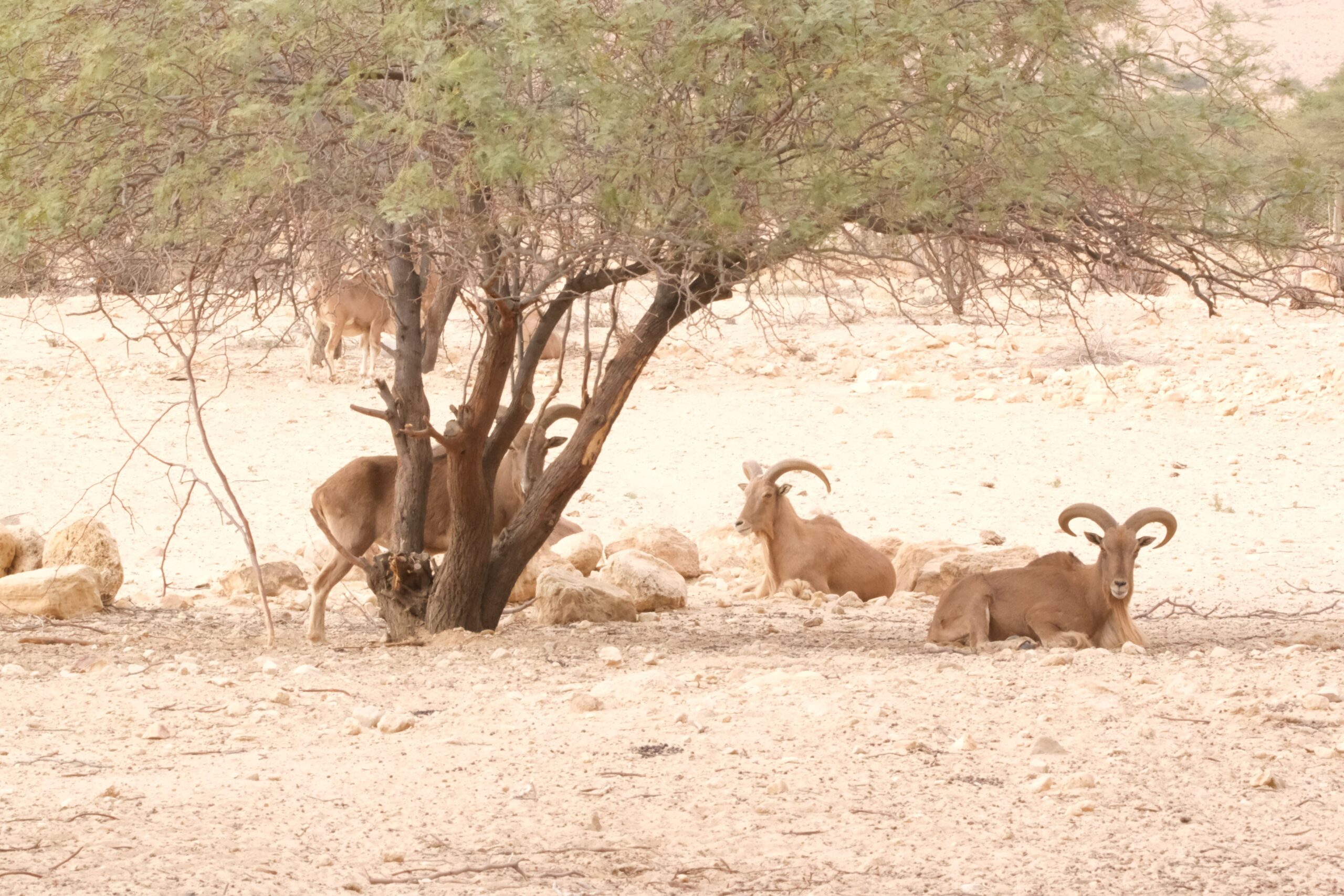
3. Environmental awareness and education
Workshops, guided tours and educational camping activities are regularly organized, offering visitors the opportunity to observe Bouhedma Park’s ecosystems in an immersive way. The aim is to raise awareness of the importance of conservation and inspire a new generation of environmental ambassadors.
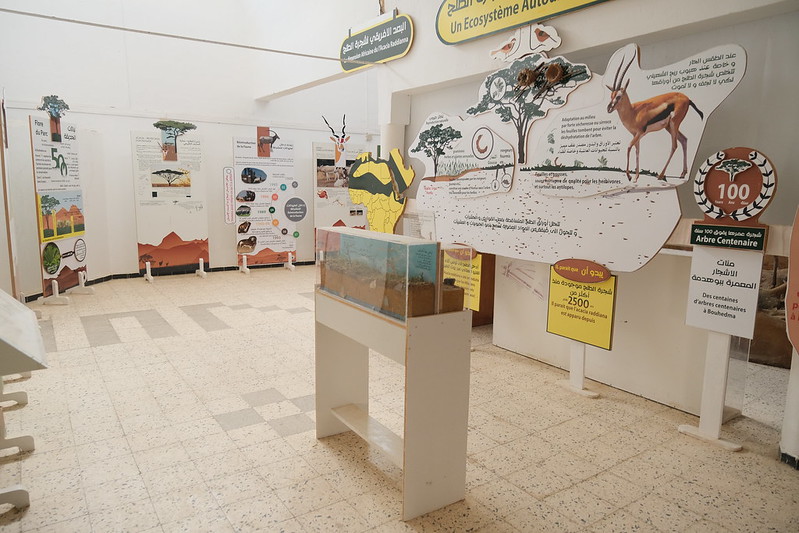
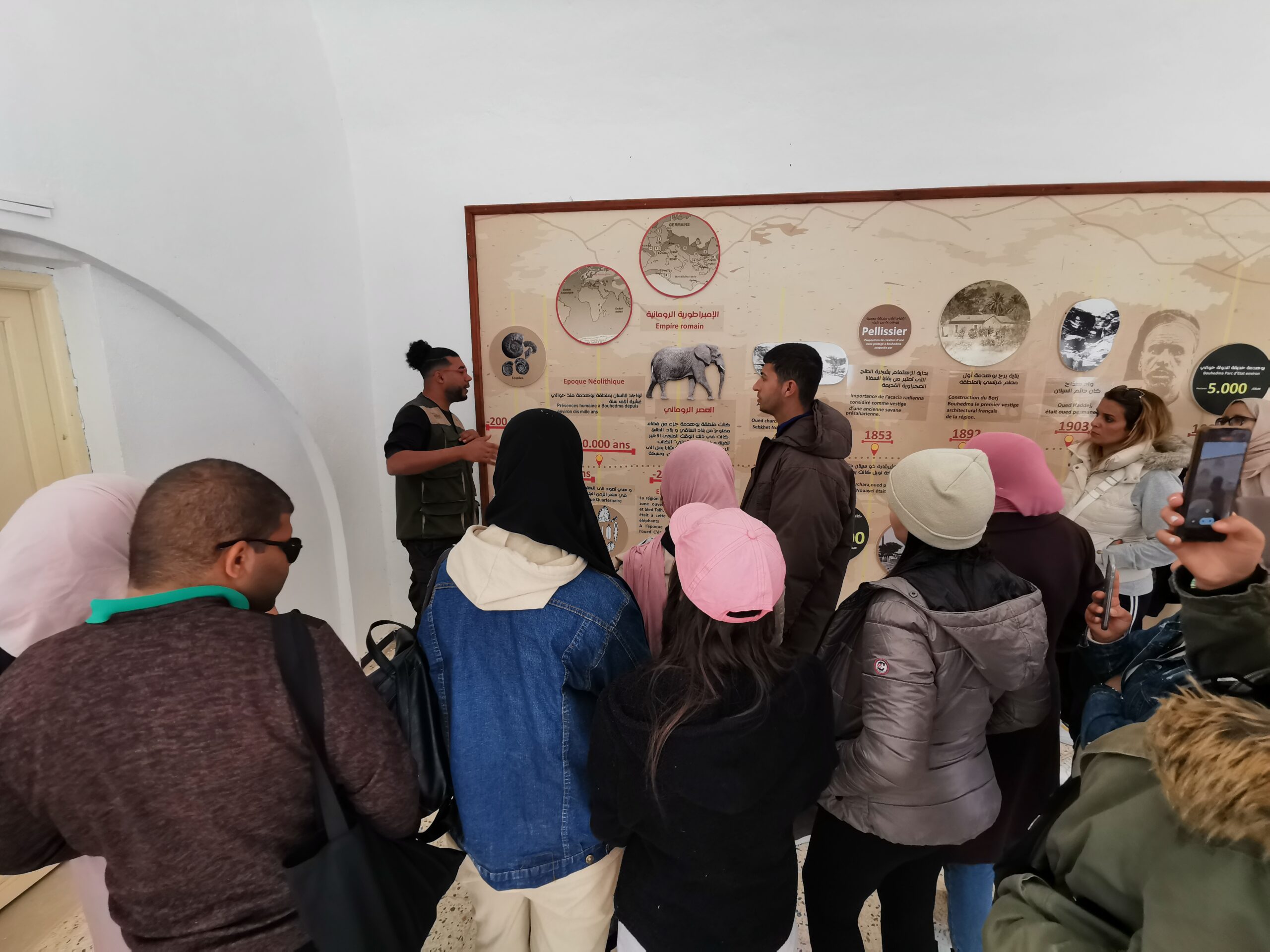
4 Long-term ecological monitoring
BIOREC Bouhedma is also planning to install a weather station to enhance its ecological data, and to strengthen its network of national and international scientific partners to guarantee quality research and ongoing monitoring.
Recent initiatives and future prospects
Biodiversity inventory and monitoring:
Since the start of the project, nine (9) expeditions have taken place in Bouhedma National Park, one in Mdhila and two in Dghoumes National Park. Observation camps are regularly set up to study specific groups, such as predators and reptiles.
The project has resulted in a comprehensive inventory of local flora and fauna, while documenting valuable sightings such as that of the striped hyena, observed for the first time in the region. The association has also acquired the habit of organizing observation camps, such as the “Bouhedma Observation Camp” in February 2024, an introductory workshop on observing the flora and fauna of the Bouhedma region, organized for a dozen students from different specialties at the Sidi Bouzid Faculty of Science. Capacity-building workshops play an essential role in strengthening links between local communities and the preservation of their environment.
Participatory ecology and scientific tourism:
ATRA promotes scientific tourism through the creation of educational tours, enabling visitors to discover the biodiversity of Bouhedma Park, while taking part in reforestation and habitat preservation activities. The association is designing a nature guide training program for local young people living near Bouhedma National Park, to prepare them to lead scientific expeditions in the region. In parallel, the association has developed accommodation structures, such as scientific cottages, which will be managed by the local population. These accommodations will host researchers and students involved in observatory-related activities and scientific research in the park. The “Lizard Camp”, organized in collaboration with the Tunisian Wildlife Association (ATVS), is an integral part of this program. The camp brings together students, naturalists, managers and foresters to enhance their skills in carnivore monitoring and scientific research. It emphasizes the importance of fieldwork and the use of new technologies in conservation and anti-poaching efforts. Participants also have the opportunity to explore the local fauna, observing various species of mammals and arthropods, enriching their understanding of the region’s biodiversity.
Support for local initiatives: The project also supports micro-nurseries and irrigation systems for local populations, promoting sustainable self-sufficiency in natural resources.
A Sustainable Conservation Model
BIOREC Bouhedma testifies to ATRA’s commitment to a sustainable conservation model that places biodiversity and the well-being of local communities at the heart of its actions. This ambitious project aims not only to preserve the natural heritage of Bouhedma Park, but also to ensure a sustainable future for local populations, through environmentally-friendly practices and inclusive collaboration with national and international stakeholders.
To find out more about ATRA, visit their website or follow them on their social media.
BIOREC is an initiative funded by the Small Initiatives Program for North African CSOs (PPI OSCAN), coordinated by IUCN-Med and co-funded by the Fonds Français pour l’Environnement Mondial (FFEM), the MAVA Foundation and the Sigrid Rausing Trust Foundation.

